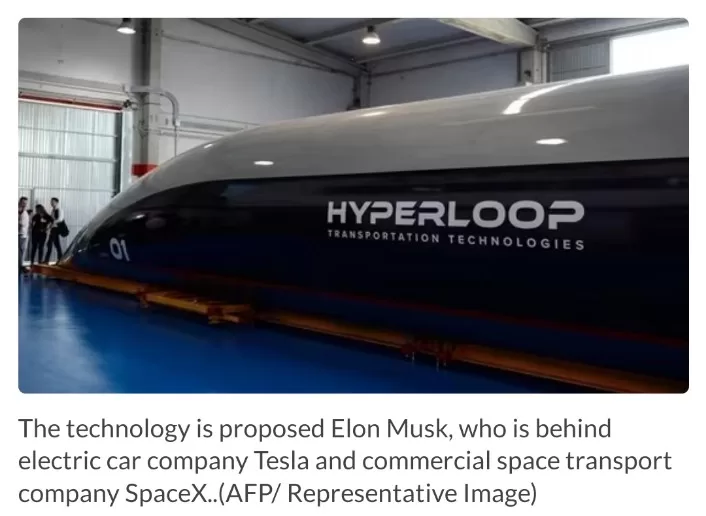New Delhi – The prospects of India adopting hyperloop technology for ultra high-speed trains in the near future have been cast into doubt by NITI Aayog Member V K Saraswat. He expressed skepticism about the maturity and economic viability of the technology at the present time.
Hyperloop technology, championed by Elon Musk, the visionary behind Tesla and SpaceX, is essentially a high-speed train that operates within a vacuum tube. Despite foreign interest in introducing this technology to India, Saraswat has raised concerns about its current viability.
“We found that the offers from foreign countries are not very viable options. They are at a very low level of technology maturity,” Saraswat commented in an exclusive interview with PTI.
While a Virgin Hyperloop test run was successfully conducted in the US in 2020, with a pod traveling at over 161 km/hr in an enclosed tube, Saraswat stressed that the offers presented to India are at an immature stage, making substantial investment unfeasible.
In contrast, the Chinese lithium-ion battery industry presents a challenge for India, which currently depends on imports due to the lack of domestic production. Saraswat acknowledged that Chinese batteries are competitively priced, making them a primary source for India’s lithium needs.
However, the Indian government is encouraging the establishment of battery manufacturing facilities in the country, with expectations of significant production in the near future. This move aims to reduce India’s heavy reliance on Chinese imports, as approximately 75% of lithium-ion imports originate from China.
On the subject of India’s efforts to tap into lithium mining in South American countries such as Chile and Bolivia, Saraswat revealed that private sector entities in India have already established supply chain agreements with companies in these regions, facilitating the procurement of lithium.
In other developments, the Indian government has been promoting methanol as an alternative fuel. Trials involving a 15% methanol blend in diesel have been successful, with partnerships involving the Bangalore Metropolitan Transport Corporation (BMTC) and Ashok Leyland.
While hyperloop technology remains a tantalizing prospect, India faces significant hurdles in its path, and the nation’s push for self-reliance in critical areas such as lithium battery production and alternative fuels continues to evolve.
For more in-depth analysis and coverage, please visit Magadh Today.






